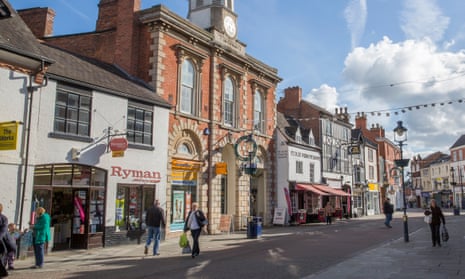It’s a good job I like pork pies as I wouldn’t exist without them. My grandparents met when they both worked for Dickinson & Morris bakery in Melton Mowbray. He was a burly man with fat fingers, a master baker who would tour country fairs demonstrating how to make a proper hand-raised pie. The sides of a pork pie should always be saggy: if they are straight and firm, it has been cooked in a tin.
My grandmother was tiny, curly-haired, with a twinkly smile that I remember clearly from my youth. Grandad’s job was to build the crust of the pie around a lump of peppery, grey sausage meat: her task was to pour hot jelly in a circle around the meat. When the jelly set, it would form a rubbery layer, which I disliked as a child and would always peel away. My grandparents’ gazes met across a pie one day and the result was three children and nine grandchildren.
My mother was their youngest. She grew up on the edge of a village close to Melton Mowbray called Nether Broughton. Many of my her side of the family still live there and we visited as recently as this summer for my aunt’s 90th birthday. My mother only left her parents’ house when she married my father and they settled in Melton Mowbray, where I was born.
When I was two, our family moved 10 miles away to Oakham, the county town of Rutland. This was considered a move up, Oakham being smaller and posher than Melton. My parents were able to buy a plot of land on a new housing estate on the edge of town that was thought to be rather grand, and have a three-bedroom bungalow built to house their growing family. We all went to the local primary school, played on the waste ground at the back of our shiny new estate with its big houses and gardens. It was on that ground that I built my own den in a hollow and sat for hours, shivering in an anorak, reading the Narnia books by CS Lewis. Melton still felt like our roots, though, and pork pies an important part of our family mythology as well our diet: Saturday teatimes usually included one.
Rutland was amalgamated with Leicestershire in 1974, which meant that Melton Mowbray and Oakham were, for a few years, in the same county. The planners reckoned without local nationalism though. For most of my childhood, when we returned from our annual caravan holiday, we would drive past the “Leicestershire” sign and a few yards on, drive past one that said “Rutland”. Every time the council took the Rutland sign down, it was re-erected by activists. After a sustained campaign, Rutland became a county again in 1997 and “Multum in parvo”, much-in-little, remains its local motto. I remember being comforted by this as a child. I was little, but I was going to do great things. When I wasn’t hiding in my book den, I was in the local library, which had the great virtue of being warm.
I don’t eat pork pies that often now but when I do, I have my very own Proustian moment, back to discarding the jelly on a Saturday teatime, the battered paperbacks I hid in my anorak pocket – and the image of my grandparents meeting at the Dickinson & Morris bakery.
